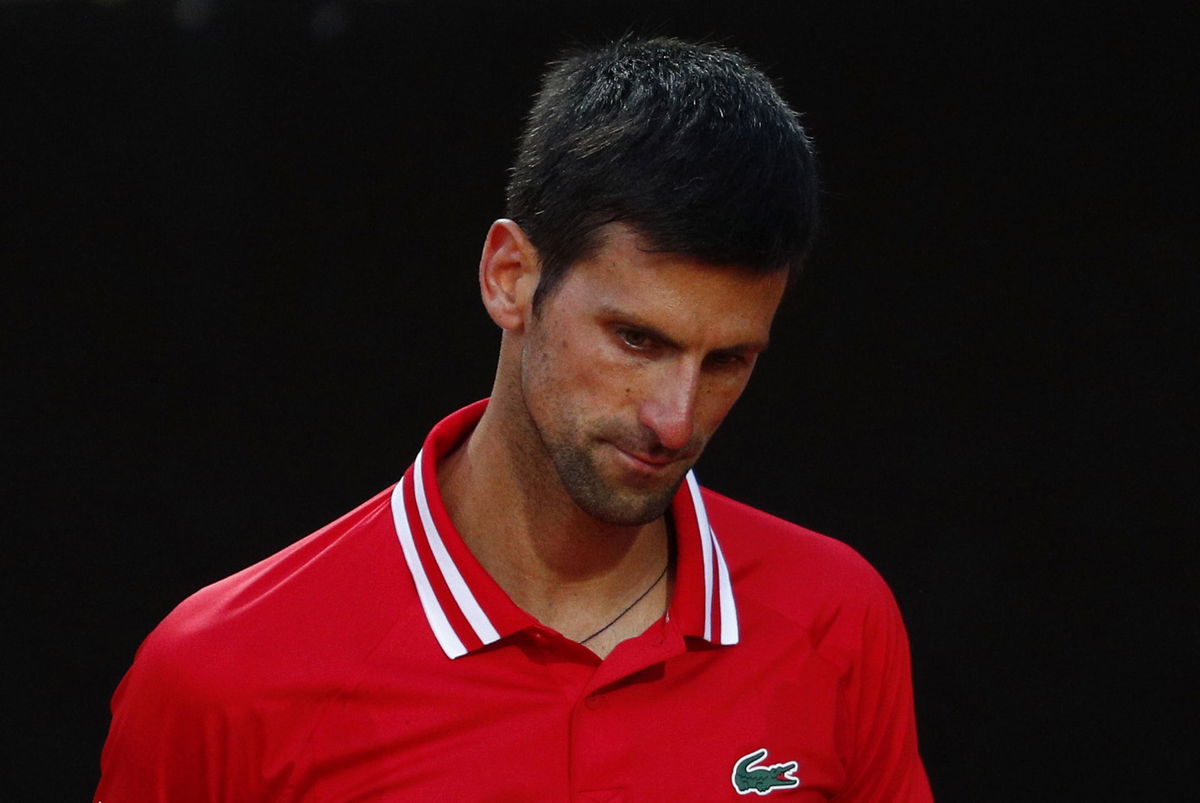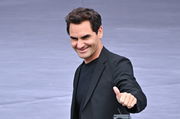
Reuters
Tennis – ATP Masters 1000 – Italian Open – Foro Italico, Rome, Italy – May 15, 2021 Serbia’s Novak Djokovic reacts during his semi final match against Italy’s Lorenzo Sonego REUTERS/Guglielmo Mangiapane

Reuters
Tennis – ATP Masters 1000 – Italian Open – Foro Italico, Rome, Italy – May 15, 2021 Serbia’s Novak Djokovic reacts during his semi final match against Italy’s Lorenzo Sonego REUTERS/Guglielmo Mangiapane
There are some advocates of electronic line calling in modern-day tennis, including 18-time Grand Slam champion Novak Djokovic, but seven-time Grand Slam champion Mats Wilander is not among them.
Watch What’s Trending Now!
In an interview with news agency Reuters, the Swedish tennis great has said that the introduction of technology to rule disputed line calls has put tennis in danger of losing its identity and individuality.
He said manual line calling adds to the intrigue that one associates with the sport and gives it a character of its own, and robbing it of the same would turn tennis into another esport.
ADVERTISEMENT
The organizers of the Australian Open introduced electronic line calling this year, doing away with on-court officials, and the US Open is set to follow their footsteps.
Novak Djokovic had demanded electronic line calling at Australian Open
However, Wilander reckons that the technology will take away from the age-old tradition and character of the sport.
ADVERTISEMENT
With going into the game’s soul and character, the advocates of the technology have said that it will ensure accurate calls and greatly reduce the risk of human errors which can often prove to be the difference between victory and defeat in a tennis match.
In fact, it was on Djokovic‘s request that electronic line calling was introduced at the Australian Open.
ADVERTISEMENT
The Serb also called for a referral system on clay, in particular the French Open, where players can challenge a line call which will eventually be decided by the Third Eye.
Top Stories
Rafael Nadal Faces New Injury Blow Only a Year After His Emotional Tennis Exit

Taylor Townsend Makes Unexpected Coaching Call After Career-Defining Success

Andy Roddick’s Sudden Return to the Court Turns Heads 13 Years After Retirement

Coco Gauff’s Vision Pays Off as Two Tennis Influencers Achieve Major Breakthrough

Roger Federer Sparks Comeback Frenzy After Huge Australian Open Announcement


Reuters
Tennis – ATP Masters 1000 – Italian Open – Foro Italico, Rome, Italy – May 16, 2021 Serbia’s Novak Djokovic in action during his final match against Spain’s Rafael Nadal REUTERS/Guglielmo Mangiapane
Djokovic put forward the proposal after a line call went against him during the recent Italian Open clay court tournament.
ADVERTISEMENT
Unlike Djokovic, Mats Wilander feels tech could rob tennis of its soul
“I like line umpires and I liked the challenge system where we had three challenges. I thought that added something in tennis that we have lost,” Wilander said.
Line calling via technology is made through real-time camera tracking, putting an end to the prevailing system where players were allowed to challenge disputed points.
ADVERTISEMENT
“I think it was some kind of intrigue where the player had to choose. Okay, this is a big enough point where I need to challenge? I thought that was an interesting twist. It made the player think even more. Now we have no line calling.
“I think it just takes away some of the personality that’s on the court,” the Swede said.
ADVERTISEMENT
Read More: Australian Open 2021 Brings a Revolutionary Change Following Novak Djokovic’s Demand
ADVERTISEMENT
Wilander is not averse to technology himself, as he helped design the NeuroTennis smart wristband which enables players to keep track of key statistics and also provides coaching tips.
ADVERTISEMENT
ADVERTISEMENT
ADVERTISEMENT

